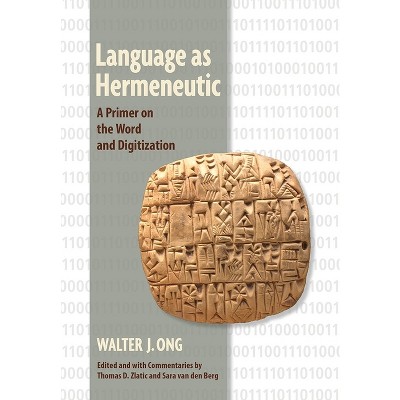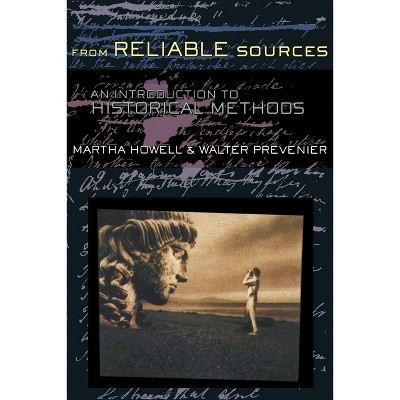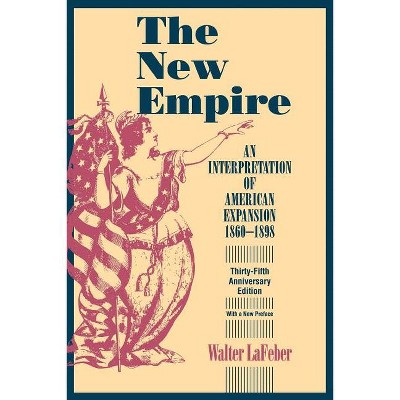The Face of Decline - by Thomas L Dublin & Walter Licht (Paperback)

About this item
Highlights
- The anthracite coal region of Pennsylvania once prospered.
- About the Author: Thomas Dublin is Professor of History at Binghamton University, State University of New York.
- 288 Pages
- History, United States
Description
About the Book
The anthracite coal region of Pennsylvania once prospered. Today, very little mining or industry remains, although residents have made valiant efforts to restore the fabric of their communities. In The Face of Decline, the noted historians Thomas...
Book Synopsis
The anthracite coal region of Pennsylvania once prospered. Today, very little mining or industry remains, although residents have made valiant efforts to restore the fabric of their communities. In The Face of Decline, the noted historians Thomas Dublin and Walter Licht offer a sweeping history of this area over the course of the twentieth century. Combining business, labor, social, political, and environmental history, Dublin and Licht delve into coal communities to explore grassroots ethnic life and labor activism, economic revitalization, and the varied impact of economic decline across generations of mining families.
The Face of Decline also features the responses to economic crisis of organized capital and labor, local business elites, redevelopment agencies, and state and federal governments. Dublin and Licht draw on a remarkable range of sources: oral histories and survey questionnaires; documentary photographs; the records of coal companies, local governments, and industrial development corporations; federal censuses; and community newspapers. The authors examine the impact of enduring economic decline across a wide region but focus especially on a small group of mining communities in the region's Panther Valley, from Jim Thorpe through Lansford to Tamaqua. The authors also place the anthracite region within a broader conceptual framework, comparing anthracite's decline to parallel developments in European coal basins and Appalachia and to deindustrialization in the United States more generally.
Review Quotes
The Face of Decline is a fine work of social history, broadly based in its approach, painstaking in its research, innovative in its methodology, and thoughtful in its conclusions. Like Dublin's When the Mines Closed, this work is essential for students both of deindustrialization and of the recent history of northeastern Pennsylvania. Just as significantly, The Face of Decline accomplishes the social historian's most difficult task: communicating with a wide audience while still challenging scholars.
-- "Business History Review"A sweeping history of this area over the course of the 20th century.... The book is not only a history lesson. It's a human tragedy story, about people who worked hard, and long, in dangerous conditions, only to be let down, not only by their profession, but by their government also. Dublin and Licht paint an honest picture, of despair, of resourcefulness, and then more despair. It's a book that belongs in every coal region home and library, and in the hands of every school kid who has heard countless stories of the way it used to be in this area.
-- "Lehighton Times News"History Professor Thomas Dublin and colleague Walter Licht offer a sweeping history of Pennsylvania's anthracite coal region during the 20th century in their new book, The Face of Decline.... Since some of the material touches on recent history, Dublin interviewed former miners about their experiences. He said these conversations complemented the data and gave it a human context. 'I found it wonderful to be able to interview people who have lived through the history, ' he said.... The Face of Decline also has much to offer politicians and business leaders in areas facing similar economic shifts.
-- "INSIDE Binghamton University"In an era when many historians are settling for symbols and representations to understand complex historical changes, Dublin and Licht have succeeded not only in explaining industrial decline and approximating its effects on the lives of their subjects but also in providing a model and a new standard for social historical research. Their narrative and analysis will certainly garner due attention and praise, but it would be good to think that their methods will also get the attention they deserve.
-- "Journal of Social History"This book is an excellent piece of scholarship, combining institutional and social history. The authors should be commended for their exhaustive research and expert merging of many different sources into a vigorous and readable narrative. It is no exaggeration to say that this book will very quickly become a classic in the fields of labor studies and economic history.
-- "Journal of American History"Thomas Dublin and Walter Licht's The Face of Decline is essential reading for anyone concerned with the economic development or redevelopment of a community, region, or state. It is also a definitive history of the anthracite region of northeastern Pennsylvania that by 1890 was supplying 16 percent of the nation's energy. The book's handsome large-format pages conceal its great length, including detailed chapters that narrate the early decades when the industry was raking in profits. These provide ballast for what follows--an account of eighty years of decline, ending in regional economic collapse.
-- "Technology and Culture"About the Author
Thomas Dublin is Professor of History at Binghamton University, State University of New York. He is the author of many books including When the Mines Closed: Stories of Struggles in Hard Times and Transforming Women's Work: New England Lives in the Industrial Revolution, both from Cornell, and Women at Work: The Transformation of Work and Community in Lowell, Massachusetts, 1826-1860, winner of the Bancroft Prize and the Merle Curti Award. Walter Licht is Professor of History at the University of Pennsylvania. He is the author of several books including Working for the Railroad: The Organization of Work in the Nineteenth Century, winner of the Philip Taft Labor History Prize; Work Sights: Industrial Philadelphia, 1890-1950; Getting Work: Philadelphia, 1840-1950; and Industrializing America: The Nineteenth Century.
Shipping details
Return details
Trending History











